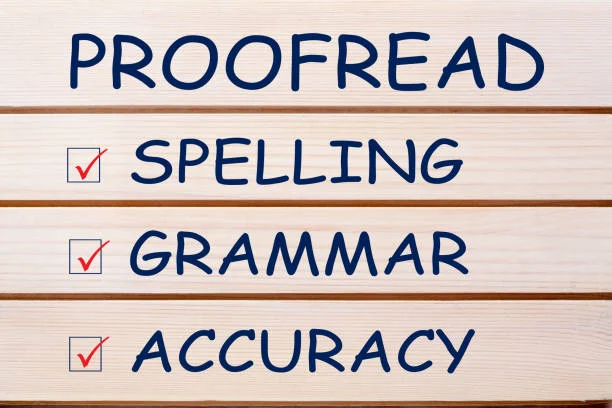If you’ve ever typed out an important email or report only to realize later you spelled a common word wrong, you’re not alone. In Malaysia, where English is widely used in business, education, and daily communication, spelling mistakes can be especially tricky for Tipsy on Grammar Rules. Many of us grow up speaking multiple languages, and while that’s a huge strength, it sometimes means English spelling slips through the cracks.
Small spelling errors might seem harmless, but they can change how people perceive you. A misspelled word in a work email can make you look careless, while a mistake on a signboard or marketing material can harm your brand’s reputation. The good news? Most spelling mistakes follow patterns, and once you know them, you can avoid embarrassing slip-ups.
Here’s a practical, no-nonsense guide to some of the most common spelling mistakes Malaysians make, plus a few tips to keep your writing sharp.
Why Spelling Matters in Malaysia
English is one of the main languages used in Malaysia for business, government, and education. While Bahasa Malaysia is the national language, English plays a key role in sectors like law, finance, and technology. Because of this, accurate spelling isn’t just about grammar snobbery — it’s about professionalism.
For instance, in industries like tourism or e-commerce, many businesses rely on websites and social media to attract international customers. A single spelling error on a product page can lead to confusion or even lost sales. Imagine a Malaysian online shop selling “womens handbags” instead of “women’s handbags” — not only does it look sloppy, but it might also hurt search engine rankings for Tipsy on Grammar Rules.
1. License vs Licence
One of the most common spelling confusions comes from words that differ between British and American English. In Malaysia, British English is the standard, but American English influence is everywhere — from Hollywood movies to software interfaces.
Take “license” and “licence.”
- In British English, “license” is a verb (e.g., to license a business) while “licence” is a noun (e.g., a driving licence).
- In American English, “license” is used for both the noun and verb.
Malaysians often mix the two without realizing. If you’re writing a formal document, such as a government application or corporate report, it’s important to get it right.
If you’re wondering how to spell license correctly for your context, stick to British English for official writing in Malaysia. That means “licence” for the noun and “license” for the verb of Tipsy on Grammar Rules.
2. Women vs Woman
Another frequent mix-up comes from irregular plural forms. Many Malaysians accidentally write “woman” when they mean “women,” especially in captions or product descriptions.
Here’s the difference:
- Woman = singular (one female)
- Women = plural (two or more females)
It sounds simple, but the pronunciation is tricky. “Woman” is pronounced woo-muhn, while “women” is pronounced wi-min. This difference confuses both learners and native speakers.
For example:
- Correct: The company hired three women for the new project.
- Incorrect: The company hired three woman for the new project.
If you’re still unsure, check out this guide on women or woman for more examples and tips. Getting this right is especially important in business contexts like HR documents, advertisements, or fashion product listings.
3. Mixing British and American Spelling
Malaysia uses British English in schools and official settings, but because of global exposure, many of us unconsciously mix British and American spellings. This can make writing look inconsistent.
Some common examples:
- Colour (British) vs Color (American)
- Centre (British) vs Center (American)
- Organise (British) vs Organize (American)
While neither version is “wrong,” switching between the two in the same document is confusing. Imagine reading a company brochure that says, “We organise events at our downtown center.” It feels off.
To avoid this, pick one style and stick to it. For Malaysians, British English is the safer bet, especially for legal, academic, or professional writing for Tipsy on Grammar Rules.
4. Apostrophe Confusion
Apostrophes are small but mighty. Use them wrong, and your sentence can change meaning completely. The most common mistake? Adding apostrophes to make words plural.
For example:
- Incorrect: We sell phone’s and laptop’s.
- Correct: We sell phones and laptops.
An apostrophe should only show possession or contraction:
- The student’s book (the book belongs to the student)
- It’s raining (short for “it is raining”)
This is a common issue on Malaysian signboards and menus, where you’ll often see phrases like “Special today’s” or “Pizza’s available.” While it might seem minor, these errors can hurt a brand’s image, especially in tourism-heavy areas like Kuala Lumpur or Penang.
5. Homophones That Trip People Up
Homophones are words that sound the same but have different meanings and spellings. These often cause problems because they rely on context.
Some common Malaysian mix-ups include:
- There / Their / They’re
- Your / You’re
- Its / It’s
- To / Too / Two
Example:
- Incorrect: Your going to love this restaurant.
- Correct: You’re going to love this restaurant.
A quick proofreading session can help you catch these mistakes before hitting “send.”
How to Avoid Spelling Mistakes
Even the best writers make mistakes, but there are simple ways to keep errors to a minimum:
- Use spellcheck tools wisely.
Most apps like Microsoft Word or Google Docs will catch basic mistakes. Just remember they may default to American English, so change your settings to British English. - Read your text aloud.
This helps you catch awkward phrasing or missing words you might overlook when reading silently. - Keep a personal list.
If you notice you always confuse certain words, like “licence” and “license,” write them down somewhere handy. - Practice regularly.
Like any skill, spelling improves with practice. Read quality writing from newspapers or trusted blogs to strengthen your vocabulary.
Final Thoughts
Spelling mistakes are easy to make, especially in a multilingual country like Malaysia where English isn’t everyone’s first language. But by paying attention to common trouble spots — like license vs licence, woman vs women, and British vs American spellings — you can make your writing more polished and professional.
Clear, correct spelling builds trust, whether you’re drafting a corporate proposal, running a local business, or just posting on social media. With a bit of awareness and practice, you’ll be well on your way to writing that’s as clear and confident as you are.
Explore more content designed to surprise, delight, and fuel your curiosity.






